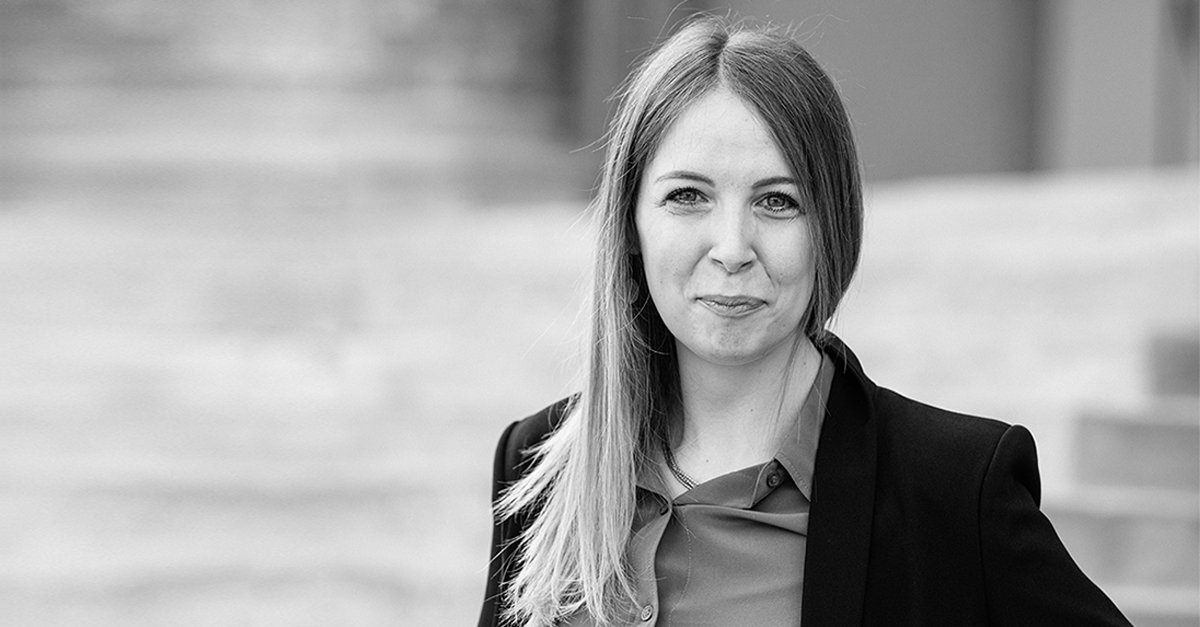
Creating an efficient ecosystem for a sustainable transition
18 May 2021Eleonora Foschi is an environmental engineer with expertise in the field of circular and bio-economy. She received a PhD from the University of Bologna with a dissertation on System Innovation and Life Cycle Thinking in the Plastics Value Chain. During the post-doc at the Department of Management, she advanced the research on business models for the circular economy. She is involved in many EU projects and collaborates with a multitude of national and international public and private institutions.
The addition of BBS Centre for Sustainability and Climate Change to the Bologna Business School represents a clear message of what should be, in the near future, the way of doing business, which can no longer ignore creating social and environmental value to mitigate the already visible effects of climate change.
To meet these needs, it is necessary to approach the complexity of natural and anthropic systems in a systemic way, analysing their relationships and understanding their cause-effect processes. The multidisciplinary approach, which I believe is the added value of the Centre, is therefore fundamental, in addition to the special characteristic of BBS, which is to have a strong collaborative and inclusive approach to the corporate world.
For years, research has been, and still is, hinged on single-sector knowledge structures, which today, as never before, highlight their severe limitations, preventing the creation of socio-technical innovation that completely revolves around social, environmental, and industrial ecosystems.
Whilst studying for my PhD, I have had the opportunity to gain experience in several research groups and projects, studying innovative products, machines, and technologies which, in the context of the laboratory, seemed to perform very well but, when put into the real world, lost their relevance because they clashed with incompatible organisational infrastructures. Therefore, being in continuous contact with public-private organisations and thus having a clear understanding of production and consumption patterns and working in a team of researchers with different backgrounds, open to the exchange of knowledge, analysis techniques and measurement methods, I believe are the necessary tools to cope with the complexity to which I was referring earlier.
If we think that animal husbandry generates 7.1 GtCO2 per year, equivalent to 14.5% of the global anthropogenic greenhouse gas emissions (Gerber et al., 2013) and that one of the main impediments to the implementation of the circular economy is the lack of comprehensive legislation, it is unthinkable that such expertise should not be part of a team working on climate change mitigation and compensation measures. This is demonstrated by the 2030 Agenda that, through the 17 Sustainable Development Goals and the 169 targets, reviews all aspects that revolve around the three dimensions of environment, society, economy to create a path of resilience that puts first climate and social justice.
If I contextualise the topic in my research path, which focuses on circular economy as a means of supporting companies in the transition to sustainable business models, it emerges that there is a need for a continuous and structured dialogue with legal experts, with whom I can discuss end-of-waste legislation, with material chemists, with whom I can understand the implications of new polymers on value chains, and also with sociologists, with whom I can test consumer behaviour, etc. This path has led me to look at economic and business sciences to combine economic and environmental aspects. It will be even more stimulating to broaden the scope and combine other experiences and skills.
Indeed, as an environmental engineer, my research has always been based on sustainability as a goal and on circular economy as a means to achieve it. During the years of my PhD and post-doc studies, I understood how corporate choices can have a huge impact on the life cycle of products/services. If we look at the plastics sector, which is currently in a state of turmoil due to growing public awareness of marine littering, the benefit is obvious.
The choice that the packaging producer and user makes at the design stage can have repercussions not only within the organisation but also, and above all, in the subsequent stages, from marketing, to use, to disposal of what will become waste. This is to say that orienting a business model towards sustainability is not limited to a marketing operation or to creating a mere competitive advantage. Adopting a sustainable business model is not just about producing a sustainable material or providing a sustainable service, but it means a radical transformation of the supply, production, marketing systems etc. So, going back to the previous example, if a brand owner decides to use more sustainable packaging, they will have to think about which material among plastic, bioplastic, paper, Tetrapak etc. can create more value along its life cycle, train employees, create consumer awareness, ensure effective recycling and recovery as a secondary raw material and consequently, create supporting partnerships etc. And, in making these changes, they must ensure that citizens’ needs are met, resources are rationalised, and long-term profit is created.
By Eleonora Foschi, Assistant Professor of Circular Economy and Sustainable Business Model
